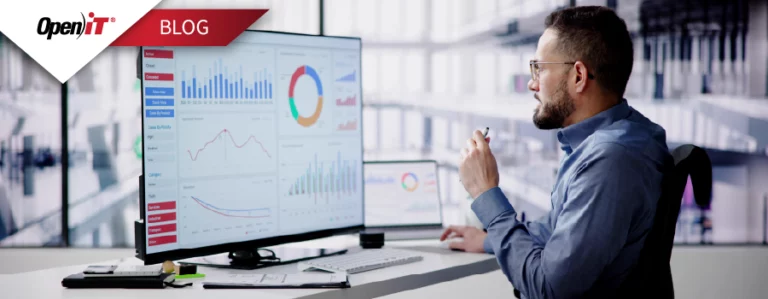Last May, US Army leaders signed a directive aimed at advancing the Army’s digital engineering capabilities. As part of this initiative, the Army plans to significantly expand its use of digital twin technology, which will streamline the design, simulation, development, and maintenance of ground vehicles, equipment, sensors, and facilities.
With these high-value software assets accounting for a sizable portion of the Army’s IT budget, partnering with an experienced license management provider like Open iT offers a strategic advantage.
Digital Engineering = More Digital Twins
Digital twins represent a critical shift away from the Army’s traditional engineering processes, which Army Undersecretary Gabe Camarillo described as “manual and document-intensive,” limiting the Army’s ability to deliver innovative capabilities quickly.
By leveraging virtual replicas of vehicle designs, engineers can simulate performance in highly customized digital environments, enabling them to identify and resolve potential issues before physical testing begins. This approach is expected to reduce costs and accelerate development timelines, enhancing the Army’s operational readiness through digital engineering advancements.
Big Investment Requires Expert SLM
However, digital twin platforms are costly and can significantly impact the Army’s budget. With $58.5 billion allocated by the Department of Defense (DoD) for IT and cyberspace investments, including the Army’s digital engineering initiatives, a considerable portion is directed toward these sophisticated tools.
Market leaders such as Aveva, Siemens, Dassault Systems, Ansys, Bentley, and Altair offer digital twin solutions with annual licensing fees in the tens of thousands of dollars. For the US Army, where classified operations demand custom-built, highly secure solutions, these costs escalate further.
Digital twin licenses are integral to the US Army’s digital engineering initiative, and optimizing these assets is equally imperative.
Given the substantial financial commitment, optimizing digital twin software licenses becomes crucial to ensure maximum return on investment (ROI). Expert software license management not only reduces unnecessary expenditures but also ensures full compliance with security and regulatory standards, making sure every dollar spent contributes to mission-critical outcomes.
Digital Twin License Management: Strategic Imperative
Open iT provides the Army with the solutions, services, and expertise necessary to ensure optimal license utilization of its digital twin applications, enabling cost savings, improved operational efficiency, and compliance with licensing agreements.
Manage Complex License Agreements
Digital twin platforms often come with intricate licensing models that are difficult to track and manage across large-scale deployments. Advanced license management solutions allow the Army to monitor license usage in real time, gaining visibility into how and where licenses are being used—whether by individuals, departments, or specific projects. This granular level of monitoring helps the Army identify underutilized licenses, avoid overuse penalties, and make data-driven decisions about resource allocation, a critical component of its overall digital engineering strategy.
Real-Time Insights and Dynamic Reallocation
Robust real-time tracking and reporting capabilities provide deep insights into license consumption. This enables the Army to dynamically reallocate licenses based on actual demand, preventing unnecessary expenditures, and ensuring critical projects have the resources they need. By identifying patterns of concurrent license overuse or inefficiencies, these solutions help the Army maintain optimal resource distribution across its digital engineering projects.
License Simulation: Optimizing License Frameworks
Just as digital twins simulate physical assets, Open iT enables the Army to simulate various license frameworks. These tools allow decision-makers to model different terms, conditions, and pricing structures, identifying the most cost-effective and mission-aligned solutions. By comparing offerings from digital twin providers, the Army can ensure optimal performance while supporting its new policy of streamlined software procurement and acquisition, making data-driven decisions that maximize value and compliance within its digital engineering initiatives.
Predictive Analytics for Future Needs
Beyond monitoring current usage, predictive analytics tools allow the Army to forecast future licensing needs. By analyzing current and historical data, the Army can anticipate spikes in demand, prevent over-provisioning, and reduce costs by purchasing only the licenses required. This predictive approach is critical in maintaining operational readiness without overspending, allowing the Army to align its IT investments with its broader mission objectives.
Ensuring Compliance and Reducing Audit Risks
Maintaining compliance with software license agreements is particularly important for the Army, where the potential costs of non-compliance can be significant. Detailed usage reporting ensures that the Army adheres to vendor agreements and is prepared for software audits. By preventing violations and ensuring the correct use of software licenses, these solutions reduce the Army’s exposure to costly penalties and mitigate the risks of operational disruption.
Work with a GSA-Certified Vendor
Open iT, as a GSA-certified vendor, has met the stringent standards set by the General Services Administration, ensuring its solutions align with government procurement expectations. This certification simplifies the procurement process for the US Army, facilitating rapid acquisition of software license management solutions essential for maintaining operational readiness and supporting its digital engineering initiatives while adapting to evolving technological requirements.
Moreover, this GSA certification provides the Army with competitive pricing and transparent contract terms, optimizing budgeting and resource allocation to maximize investments in software assets critical for digital engineering projects. Additionally, this certification guarantees compliance with strict security and regulatory standards necessary for classified operations, enabling the Army to leverage advanced tools for effective software license management while adhering to essential protocols.






